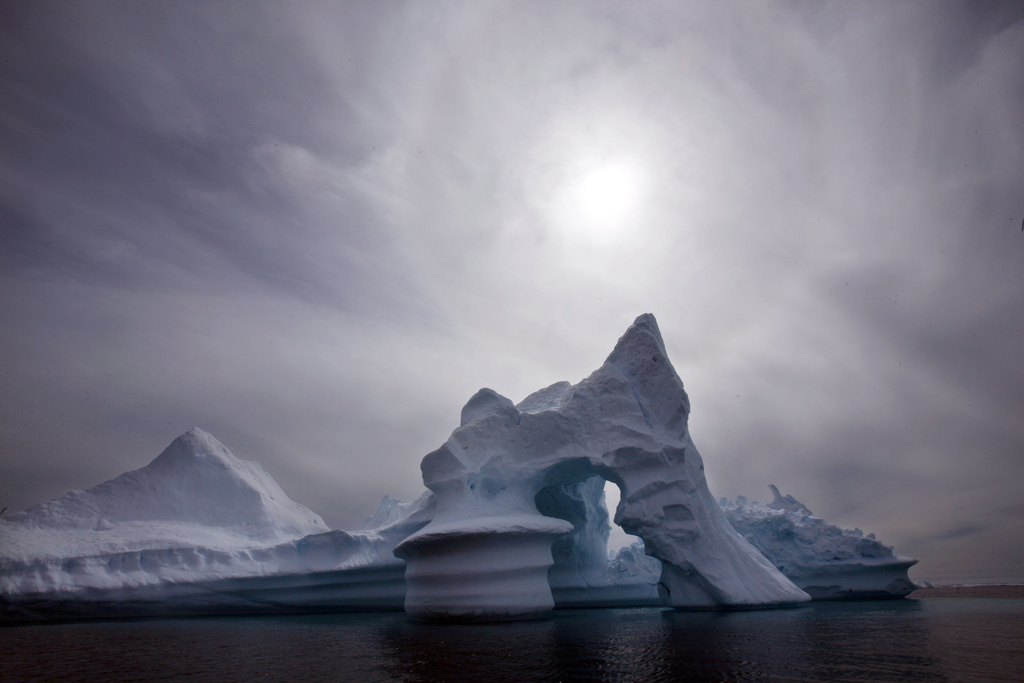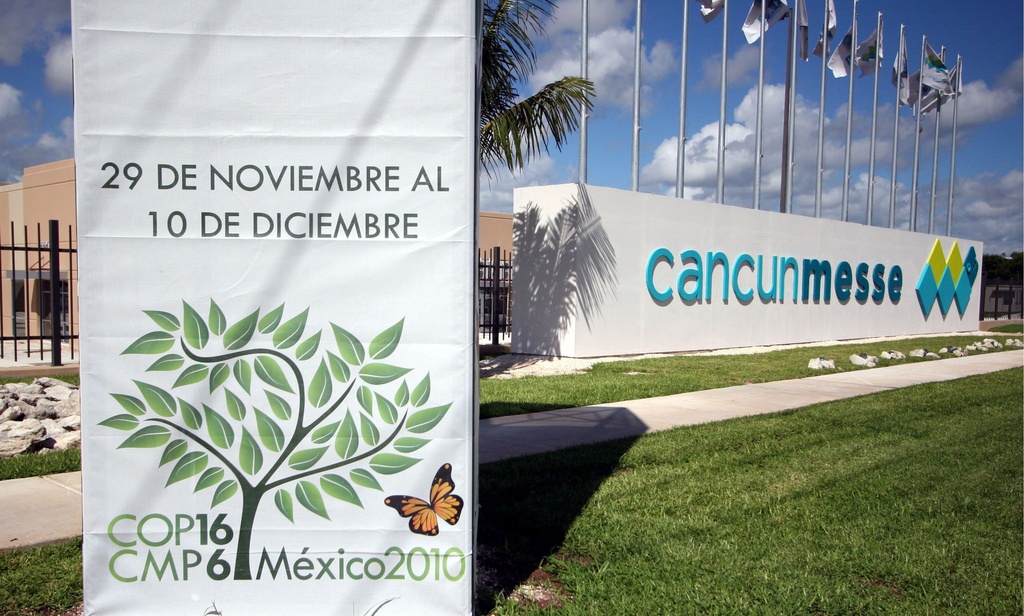Oceans face rough future due to climate change

Urgent measures are needed to help ocean ecosystems that are facing a rough time due to climate change and human activity, warns a Swiss marine biologist.
Nikolaus Gelpke is one of the main figures behind the first “World Ocean Review”, a comprehensive report by the Hamburg-based non-governmental organisation maribus that aims to give new insights into the complexity of our fragile seas.
“Our oceans are immense, dark and hostile. We know very little about them and even less about the ocean floors. But what we know is that the seas are not well. They are like patients that are getting sicker and sicker – and nobody takes them seriously,” Gelpke told swissinfo.ch.
The 200-page report on the state of the world’s oceans is based on joint work by teams of leading marine specialists.
Reports about steadily rising global temperatures and sea levels, melting glaciers and seas that are being overfished and contaminated regularly appear in the world’s press. It is widely known that the huge growth in ocean traffic caused by globalisation has also led to increasing undersea noise pollution that affects marine animals, said the marine biologist.
But people really know very little about how badly our oceans are deteriorating, said Gelpke.
“Over half of all carbon dioxide that we release is absorbed by the seas – millions of tonnes every year. This is great news as without the oceans the effects of climate change would be much stronger,” he explained.
Acidification
The absorption of CO2 by the oceans is “huge, but not indefinite” and it also leads to acidification, which has a negative impact on the marine animal and plant world, says the report.
“Animals’ skeletons – the chalky shells – are getting softer. Species are being displaced or dying. That can no longer be stopped; the best we can do is slow it down,” Gelpke said.
For humans this is a disaster as the seas are an important source of food and in some areas fish are part of the staple diet.
Slightly less dramatic is the slow rise in sea levels, explained Gelpke: “Some people will have to move, but in Europe we can act and build dykes. The poor will once again be hardest hit in places like Bangladesh.”
Melting polar icecaps will also have dramatic consequences as they will be able to reflect back less of the sun’s energy, causing the Earth to heat up, the authors point out.
“This leads to desertification; something which is already happening in southern Europe and which cannot be prevented. Africa is the worst affected though,” said Gelpke.
Fish stocks
Africa’s fish stocks are also suffering, explained the Swiss biologist.
“The European Union’s fish policy has been so damaging over recent decades that many fish species have died out or will soon disappear,” he noted.
“As soon as fish stock quotas are reached, the big EU fishing fleets simply sail to West Africa and fish the oceans there until they are empty – leaving local fishermen without any work.”
The EU Commissioner for Fisheries has admitted publicly that he is powerless against the fishing lobbies from France, Spain and Portugal.
Urgent measures are needed to bring the fishing situation under control and to create protected areas to allow fish stocks to recover, as decided at the UN biodiversity conference in Nagoya at the end of October, said Gelpke.
Not a vote-winner
“The oceans are not like grasslands that you can cut and then the next harvest they are still there. The sea is like a supertanker that takes 25 miles to stop.”
To try and change things international pressure must be exerted on politicians via the media and the general public, says maribus.
It may seem cynical but events like the recent Gulf of Mexico oil disaster are helpful in opening people’s eyes to what is happening, said the Swiss.
“Unfortunately the oceans are not high up the political agenda as they are not a vote-winner – or not yet,” said Gelpke.
And he is not very optimistic about the result of the current UN climate conference in Cancun, Mexico.
“It will be like in Copenhagen – attempts to secure definite agreements are doomed thanks to the US, China and India.”
No politician can afford to take on an emerging China, said Gelpke: “Profit and short-sighted thinking are the order of the day right now.”
The UN Climate Change Conference takes place in Cancun, Mexico takes place from November 29 to December 10.
The negotiating process revolves around sessions of the signatory parties to the UN Framework Convention on Climate Change (UNFCCC), which meet annually to review how the convention is being implemented.
Talks will include the issues of adaptation, reducing greenhouse gas emissions, climate finance, and the future of the Kyoto Protocol.
The UN and Mexico say progress has also been made on setting up funding for developing nations to cope with the effects of climate change, as well as the thorny issue of measuring and verifying countries’ emissions of greenhouse gases but that a deal to replace the Kyoto Protocol was farther off.
The protocol, the UN’s main tool for curbing greenhouse gas emissions, expires at the end of 2012.
More than 120 nations agreed in Copenhagen in 2009 to find a way to limit the rise in average global temperatures to less than 2 degrees Celsius but differences remain over how to achieve that goal.
Ahead of the summit China admitted producing the most greenhouse gases. But it says the main engine driver for talks is still the developed nations, the US in particular.
Nikolaus Gelpke was born in Zurich in 1962.
He studied marine biology and the international law of the sea at Kiel University in Germany.
He has worked as a research diver for Zurich University and Greenpeace.
His enthusiasm for the seas and oceans inspired him to found the publication “mare”, over which he has presided as publisher and editor-in-chief since its inception.
Gelpke is a committed marine conservationist, president of the Ocean Science and Research Foundation and vice-president of the International Ocean Institute.

In compliance with the JTI standards
More: SWI swissinfo.ch certified by the Journalism Trust Initiative














You can find an overview of ongoing debates with our journalists here . Please join us!
If you want to start a conversation about a topic raised in this article or want to report factual errors, email us at english@swissinfo.ch.